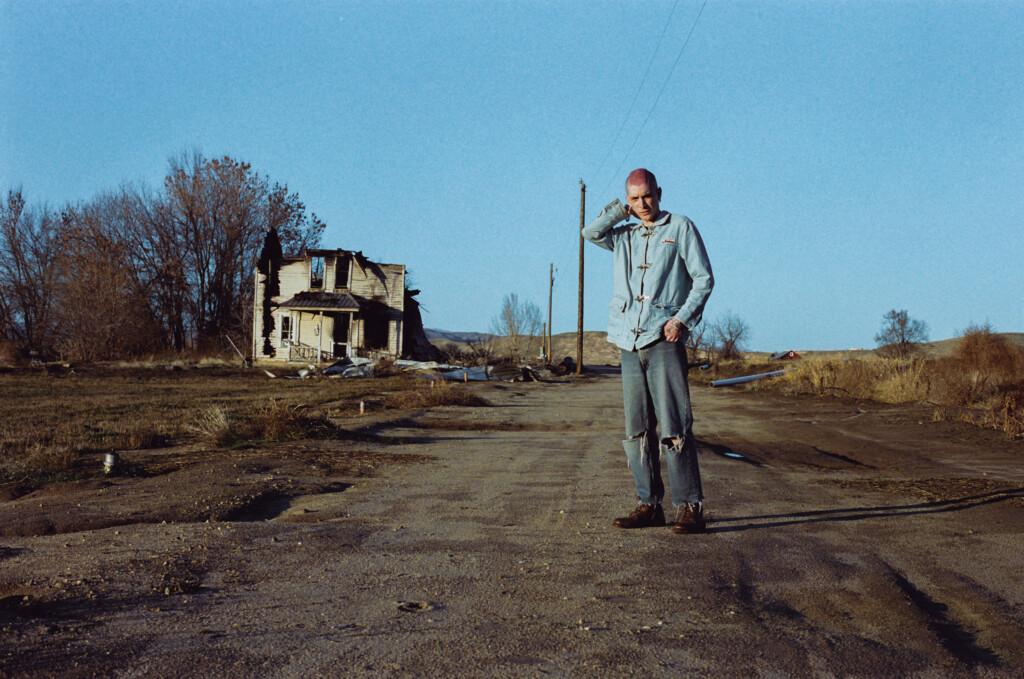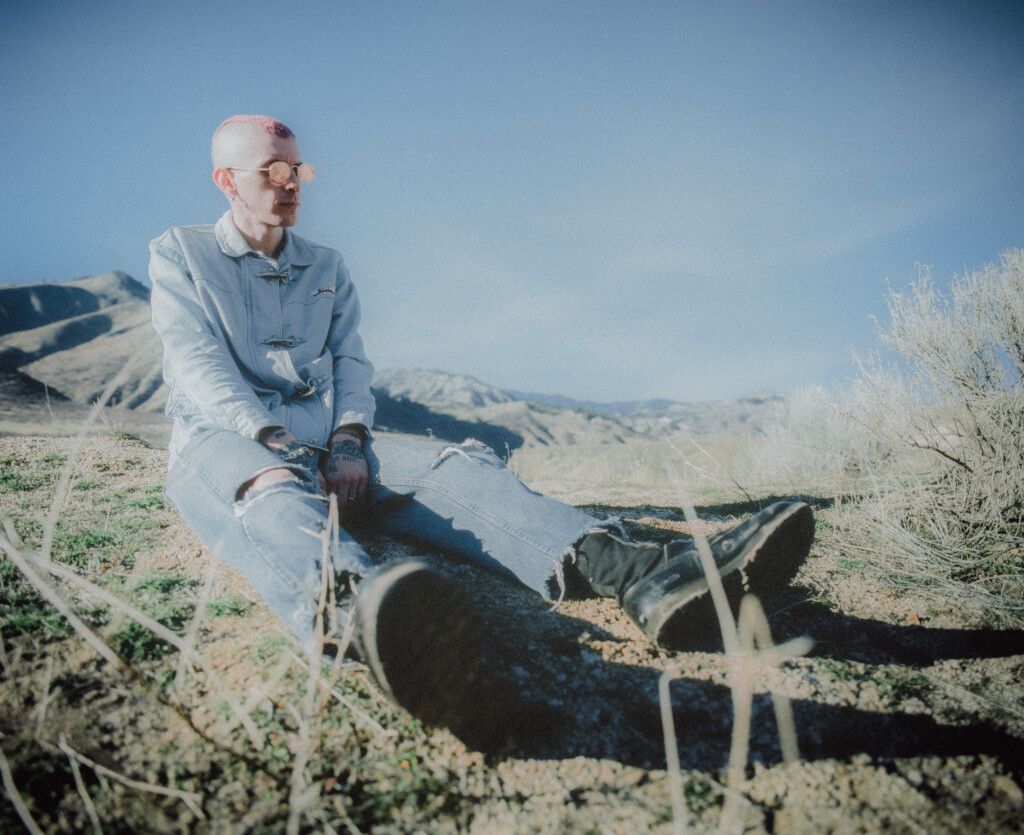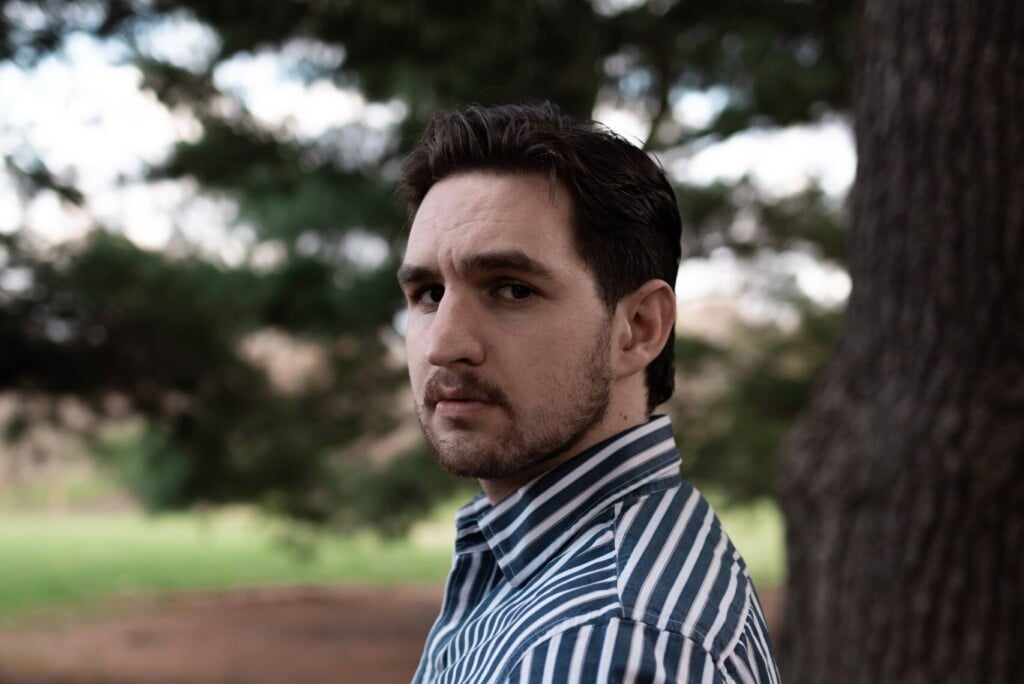Youth Lagoon talk album inspiration and the revival of his moniker ahead July 25 recordBar gig
Seven years after ditching his stage name, Trevor Powers is returning as Youth Lagoon with his new album Heaven is a Junkyard and a stacked North American tour swinging through Kansas City July 25.
Powers had barely entered his twenties when he adopted his moniker in 2010, under which he would release three successful psychedelic indie pop albums within four years. Feeling limited by some of his fanbase’s attachment to the original Youth Lagoon aura, he decided to kill the project in 2016 with no plans to return to the name.
“I couldn’t see myself in this thing that I had created,” Powers says.
In the years following, Powers would release Mulberry Violence (2018) and Capricorn (2020) under his given name and face a several-month-long health battle after a reaction to prescribed over-the-counter medication.
Now, in Heaven is a Junkyard, Powers revives Youth Lagoon and what it means to him, his reclaimed identity and self-awareness palpable throughout the 10-track album released June 9.
Woven with contemplative metaphors and his almost hushed, higher-pitched vocals, it feels at many times like he is trying to tell you an eerie secret.
We caught up with Powers ahead of his July 25 recordBar gig to talk songwriting, self-reflection, album inspiration, and an underlying factor in all three of the aforementioned—his home city and state of Boise, Idaho.
The Pitch: How are you feeling with the tour starting on July 14?
Nervous in the sense that I care so much. My whole thing with live shows is really trying to make it something that is not only expansive on the emotional end in terms of what a record is trying to say—but expansive in the world-building sense of really making it feel like you’re entering into this other zone or little alternate reality in a way. So there was just a lot of nerves before rehearsal started about what the best way to go about approaching all that would be. And then when things started snapping into place rehearsal-wise, that’s when I had this huge wave of relief where I’m like, ‘Okay, I think it’s gonna be sick.’
Why did you decide to come back as Youth Lagoon with this album Heaven is a Junkyard and take it on tour?
A lot of reasons. But the main thing was I had hit this point where I realized so much of my life was these jagged pieces, and everything was compartmentalized in my brain of previous versions of self. You have your junior high self, your high school self, and your college self. All these different barriers that we set up on the way that we approach life, and then beyond that, the way that I was approaching creativity.
When I killed off Youth Lagoon and ended the moniker, it was such a freeing and necessary thing for me to do for my own growth, because what it had turned into was this thing that I could no longer identify myself with, I couldn’t recognize it anymore. And I felt like a lot of people with Youth Lagoon got stuck on this early identity of how they viewed those two words and what those two words should mean. And I didn’t. I’ve always been on my own train, no matter who else is on it with me. It has to be selfish to a huge degree just because of the way that I use music —it’s such a sacred space and almost spiritual for me. And my creative process has always centered around the idea of never repeating myself musically, because there’s so much noise in the world right now that it’s pointless and a waste of air and space to do something more than once.
All that being said, I just got a little frustrated. And when I ended it, that was the first time in a long time that I felt like I could finally breathe deep and go into these other portions of my soul and really start getting to know myself for what felt like the first time ever. I never expected to go back to the moniker, but I hit a point in my life where I saw that if I accept these pieces of myself that I had discarded and deemed old or unnecessary, and combine them with who I am now—that’s when things actually started feeling fresh. Suddenly, it made Youth Lagoon feel like this brand-new project. Obviously, there’s a foundation and a history to it, but the identity of it is something that is not at all what it once was.
What does Youth Lagoon mean to you now? How has it changed?
My inspirations and influences are so dramatically different. I started Youth Lagoon when I was so young. I was still trying to figure out who I was as a person. And then I got to this point where I had done a couple of records under my own name and it felt in a lot of ways like going to college where I had gone to learn new ways to write a song, to produce music, think about the world, and interact with the world and participate with people and conversations. Through the lens of songwriting, that’s where it feels like a totally different approach from how I was viewing music in the past. It’s like that space between the lines that feels impossible to talk about, but you know it’s there; you feel it’s there. You feel this thing in the room that no one else might be able to see. And that’s so much of my processes—existing in the space between the lines.
Can you tell us about Heaven is a Junkyard and what it means to you? What are the big themes that you tackle?
A lot of this whole process in writing the album was falling in love with songwriting in general. And beyond that, learning how to be present in the moment, in what’s happening right here and right now. A huge way that took form was paying attention to what was happening in my neighborhood. Before it was always so easy to take for granted. The fact that I live around so many characters—and I’m sure they think the same thing about me— there’s so much to soak in. Because I always used to think, especially living somewhere like Idaho, that all the excitement was elsewhere. And I would pull from that and find out what’s going on in all these other places and through travels. But I found that usually, the most exciting stuff is the stuff that’s happening right down the street from you or right next door in your immediate universe. And a lot of it really came down to just falling in love with people; falling in love with the present moment. And falling in love with home.
Can you speak on your home in Boise and how it inspires you?
Boise is beautiful. There are a lot of different corners to Boise and sides to it that drastically vary from one side to the other. You can easily access the mountains. You can get to a place called Idaho City for instance, which is an old mining town and one of my favorite places to spend time in and where one of the music videos was filmed (for “The Sling”).
There are just so many places that feel haunted in the best way possible—haunted with these spirits from the past that you can feel and feed off of. It’s one of the reasons why I love Idaho so much. I feel those spirits in a lot of places I go all throughout the state. The areas of Boise and Idaho that feel very remote and small town—really anything that feels like the underbelly of America—inspire me. There’s some kind of fragmented beauty to what the underbelly can be.
“Trapeze Artist” stands out as one song on the album that seems to allude to your health battle in 2021. What is the story behind this song?
That’s one of those songs that is directly about that health experience. Whereas the rest of the album was inspired by that experience in the way it woke me up. It shook me. It shook me to my core, in a way that nothing else in my life ever had. It made the wind feel different on my skin and made it made food taste different. It made good conversations that much sweeter. I wouldn’t say the album is about that experience, except for Trapeze Artist and then there are a couple of lines in a handful of other songs where I referenced that with a line. My digestive system got turned upside down, and then with all the other systems in your body, that creates that domino effect. I lost my voice for months on end. And “Trapeze” rescued me in a lot of ways because it enabled me to directly funnel those feelings into something that felt like a lifeline of sorts.
Youth Lagoon will be in Kansas City for his ninth stop of the tour at recordBar on July 25. You can purchase your tickets here.






